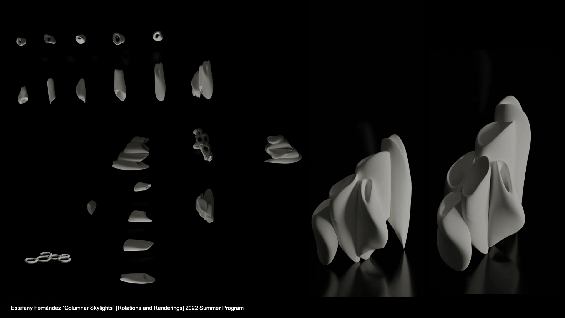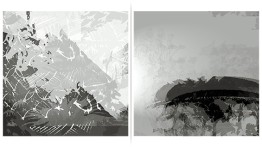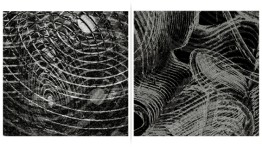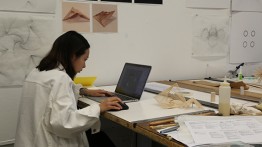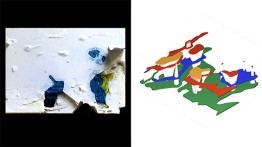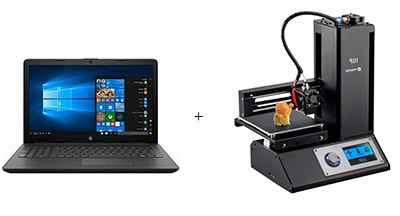Introduction to Architecture for College Students Online
Foundation Studies and Portfolio Development for College Students
Program Description | Eligibility, Application, Costs, and Summer Kit | Program Policies | FAQ
July 6 - July 31, 2026 | 4-weeks, 4 credits | Live Synchronous Sessions Monday - Friday, 11AM-2PM EST.
Student daily tutorial and desk-critique sessions will be assigned to either 9AM-11AM EST or 2PM-4PM EST to accommodate time zone differences.
Application Deadline: June 1, 2026. Enrollment Deadline: June 13, 2026
Program Description
The Irwin S. Chanin School of Architecture of The Cooper Union is proud to announce our 2026 summer intensive program that features a virtual curriculum accessible to students worldwide. As an institution that is committed to the pursuit of excellence and learning, we view our current circumstances as an opportunity to advance our thinking through radical experimentation between various forms of online engagements, digital interface, virtual modeling and representation techniques. The pleasure of making and experimentation are fundamental to our discovery of architecture and the innovation of the discipline, as well as a deeply thoughtful form of social and cultural dialogue where the imaginary becomes possible.
The Cooper Union’s Introduction to Architecture is an intensive 4-week program that offers an immersive experience into the study of architecture as a discipline and profession. The program is designed to familiarize the college-level student with architectural thought, design, and practice.
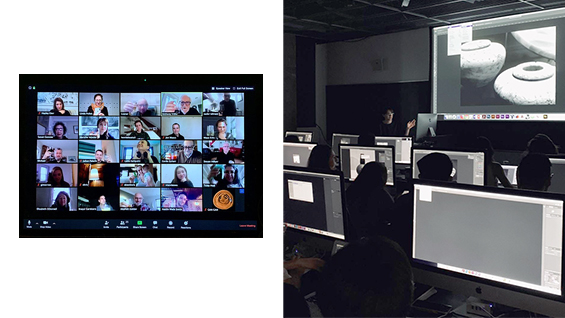
The School of Architecture successfully adapted virtual platforms of instruction in the Spring 2020 semester.
Students will work remotely while engaging virtually with each other and the faculty. Exercises will focus on the key principles of architectural design: geometry, structure and function. The goal of this intensive is for students to learn how to translate their ideas into three-dimensional form and develop a portfolio.
The program will include lectures, workshops and tutorials by Cooper Union faculty including Mersiha Veledar, James Lowder, Nader Tehrani, Elizabeth O'Donnell and Lauren Kogod amongst others. Students will participate in critiques, seminars and/or workshops that exemplify what makes education at The Cooper Union unique. Our pedagogy places strong emphasis on critical and conceptual thinking, design and making in avid engagement with architectural texts and drawings. Weekly lectures will introduce key topics in architectural history and theory pursued by practitioners and researchers alike.
The course begins with a variety of sessions introducing students to the domains of knowledge and education practiced in the architectural profession today, such as critique, digital analysis and representation, and 3-D modeling and fabrication.
Over the course of the program, the students will be able to develop a body of work including projects, models, and drawings. Each student will be guided by the design faculty individually and as a group to review and edit their work in composing their portfolio.
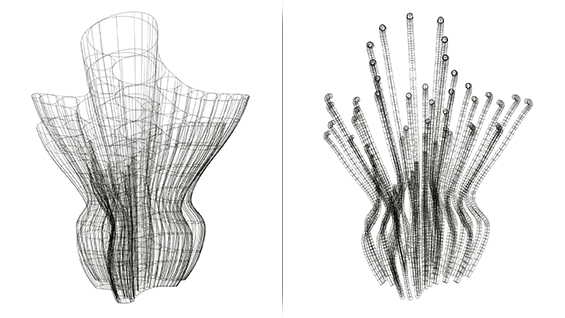
Summer 2019 portfolio sample by Joss Liao.
Virtual Methods
Through an iterative design process, students will discover the importance of developing digital proficiency through various methods of representation and geometric composition, while testing new forms of knowledge. The focus will be on how representation, the systems of abstraction that conflate problems of depiction, instrumentality, and imagination, develop the analytical tools necessary to describe and interrogate objects in the world and the creative intellect. Thus, we will explore how the representation of space operates as a mechanism that recreates the world.
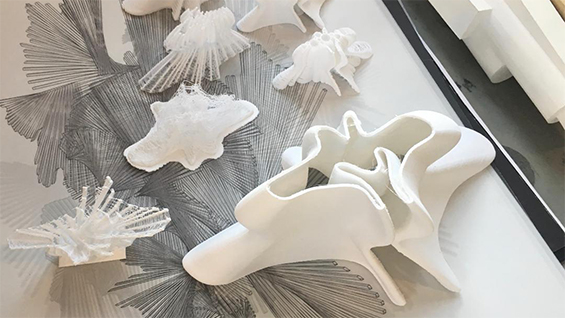
Summer 2019 portfolio sample by Joss Liao.
These working methods will alternate between two-dimensions and three-dimensions and highlight multiple processes to guide the design and construction of a physical space. In addition to the rigorous engagement with drawing and scripting, virtual modeling and imaging introduce complex geometric properties and phenomenological qualities, such as light and atmosphere, for students to develop an intuitive understanding of materiality and scale. Critical knowledge and deployment of these parameters will be tested back and forth between hybrid techniques in Rhino [3-D modeling], Photoshop [materials and atmospheres], and 3-D printing [physical models] as key processes in the development of individual portfolios.
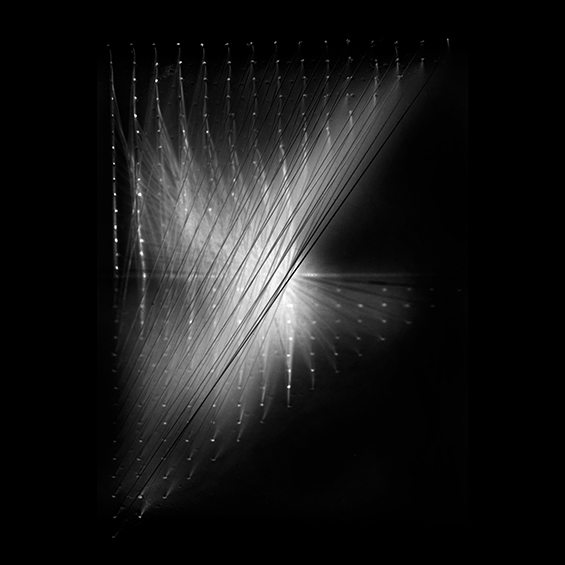
Summer 2019 portfolio sample by Amelia Ortega.
Context
In addition to weekly design problems, this program will provide historical context through a sequence of robust seminars, film screenings, and weekly readings that will elucidate different ways to ‘see’ space across various scales and cultures. This dialogue is instrumental in learning to challenge habitual ways of seeing by providing a historical perspective to the evolution of spatial transformation in architecture. A lecture series with accomplished practitioners will provide insight into the development of their work through various case studies that highlight their innovative design practices. Group sessions will offer an invaluable resource for our students to advance through faculty critiques and feedback on their projects while being part of a larger forum of fellow students.
Outcomes
Over the course of the program students will develop a set of projects in the form of models and drawings, and learn to present their ideas verbally as well as in a portfolio. The design faculty will work with each student, individually and as a group, to review and edit their projects, resulting in a portfolio that may be used as part of the college application process. This course introduces students to gain the following:
- The ability to think precisely through the advent of Descriptive Geometry.
- Advanced skills and facility between hybrid digital tools in the making of architecture.
- Technical proficiency in design software and hardware
- Practice and vocabulary articulating the contextual, formal, and conceptual aspects of their projects.
- A body of work for your college admission portfolio.
- Exposure to a dedicated college faculty mentorship where lectures, tutorials, and critical discourse become key in future creative advancement.
- Intellectual and critical thinking skills through college-level coursework.
- The opportunity to enter the architecture learning community and interact with students from all over the world with diverse creative interests.
- Professional connections through unprecedented accessibility to an international jury of architecture faculty and critics.
- College credits eligible for transfer to another institution.
- Opportunity to be included in a virtual group exhibition of student work after program completion.
Course Timeline
Weekly design problems will be structured as spatial games with specific rules to enable students to encounter new ways of seeing, thinking, and making.
- Week 1 Software Variations: Points and Lines
- Week 2 Modelling Plasticity: Object Volumes
- Week 3 Hybrid Systems [Weeks 1 and 2 in tandem]
- Week 4 Final Reviews
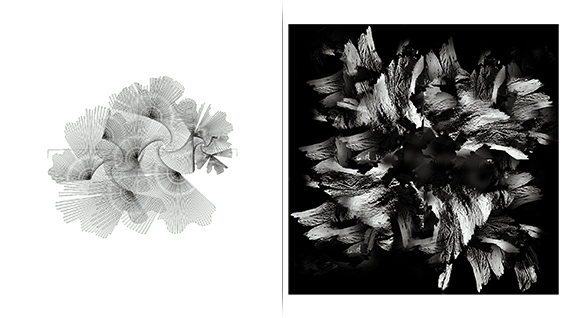
Summer 2019 portfolio project sample by Maya Adachi.
| Eligibility |
Students from all academic fields are welcome and encouraged to apply. Prospective students must have graduated from High School at the time of application. They need not be currently enrolled in an academic institution. |
| Application |
Applicants will fill out an application form including a statement of no more than 300 words expressing their interest in the program and one reference letter. Admission is on a rolling basis; successful applicants will be accepted based on previous academic work and all submitted statements, as space allows. We recommend that you submit your application as early as possible. Applicants may access the application here. Application Deadline: June 1, 2026. Enrollment Deadline: June 13, 2026 | Apply Applicants accepted to the program will be notified on a rolling basis beginning in late March. No applications will be reviewed after June 10, 2026. Applications are expected to submit by June 1st in order to allow the admissions committee time for final review by June 10. Students accepted before or by June 10 are expected to confirm their enrollment by June 13 at the latest. |
| Cost and Fees |
Program Tuition: $2,670.* Students will be responsible for purchasing supplies. Application Fee: $40* Online Summer Kit: See information in the section below to assess additional costs.* Successful applicants will be responsible for paying the program cost in full upon acceptance.* |
| Housing |
Housing is not available during the summer sessions through The Cooper Union. |
| Online Summer Kit |
Students are required to have access to a PC or MAC computer for the duration of the summer program that meets system requirements to run Rhino and Adobe Creative Suite. Please see our Hardware Specification and Software Installation Instruction Page for guidance on the required technology for digital design and course participation. Rhino is required and available as a free trial. The Cooper Union will provide full access to Adobe Creative Cloud applications for the duration of the School of Architecture Summer Programs. You will be sent login, download, and installation instructions shortly before the start of the program. Access will expire immediately following Final Reviews. Students who do not currently own a computer may look into monthly rental options.
*For students who are interested in the optional purchase of fabrication equipment for physical models could look into this affordable 3-D printer and filament. Students may choose a filament color of their choice. A 1 kg spool of the black or white options is recommended. |
Program Policies
Grades, Evaluations, and Credit
The Introduction to Architecture Online: Foundation Studies and Portfolio Development for College Students is academically rigorous and offers college credit upon successful completion of the program. Individual assignments, class participation, and attendance will be evaluated by the faculty.
Successful completion is determined by the instructors and the administration of the School of Architecture and will be based on attendance, satisfactory completion of assignments, participation in group critiques, design work and productivity, and adherence to the program's Code of Conduct.
Class attendance is carefully monitored and factored into grades. Students are expected to attend all classes unless they are ill.
Online Class Participation
Synchronous learning and class attendance is mandatory. Asynchronous learning is expected. Unexcused absences can lead to dismissal from the program. In the event that a student is dismissed due to unexcused absences, no portion of tuition will be refunded. Students are expected to engage seriously in their studies through class participation, completion of assigned work, and critique. Disruptive behavior in any form will not be tolerated.
Academic Integrity
The Cooper Union is committed to preserving an environment that challenges every student to realize their potential. You are expected to provide your best effort and will be supported to produce original work of the highest caliber. Plagiarism is the presentation of another person’s “work” (ideas, words, equations, computer code, graphics, lab data, etc.) as one’s own. Plagiarism in any form is not tolerated and may lead to dismissal from the program.
Code of Conduct
The Code of Conduct is designed to ensure the safety and well-being of the students and the integrity of the college. It is strictly enforced and failure to abide by them results in dismissal from the Introduction to Architecture Online for College Students. A student’s adherence to the Code of Conduct is determined by the instructors and administration of the School of Architecture.
In the event a student is dismissed due to violating the Code of Conduct, he/she/they will not receive a Certificate of Completion and no portion of tuition will be refunded. Students who have been dismissed are not permitted to participate in the remainder of the online program.
Frequently Asked Questions
I do not have any architecture experience. Can I participate?
You do not need any prior experience in or have studied architecture to participate in the Introduction to Architecture program.
Are there any specific math or engineering skills necessary? What about computer software skills?
Students who wish to enroll in the Introduction to Architecture program are not required to have specific skills beyond basic math and general computer literacy.
What is the attendance policy? What if I have to miss a class?
All programs are full-time and conducted on a synchronous schedule, Monday through Friday, 11AM-2PM EST. Daily tutorial and desk-critique session times will be assigned to either 9AM-11AM EST or 2PM-4PM EST to accommodate time zone differences. Attendance at virtual class meetings is mandatory and students should expect to spend time outside of class developing their projects. Students will not have access to the studio at The Cooper Union and are encouraged to organize their working space in a manner that is conducive to learning. Full participation is necessary to remain enrolled in the program. Students with 3 unexcused absences will be automatically dismissed from the program. In the event that a student is dismissed due to 3 or more unexcused absences, he/she will not be refunded for payment of the program.
What happens after the program ends?
The Introduction to Architecture program culminates in a portfolio that can potentially be used for applying to a professional degree program in architecture. College students are eligible for college credit upon successful completion of the program.
I am an international student. May I apply to the Summer Programs offered Online?
Yes. I-20 Visas and F-1 student status are not necessary to enroll and participate in the online program. International students are eligible to participate virtually from anywhere in the world.
Are scholarships available?
Scholarships and Financial Aid are not available for this program.
Do I need to be present in New York City in order to participate in this online summer program?
No, students do not need to be present in New York City in order to participate in the Introduction to Architecture Online program. Instruction will be conducted online and access to campus and studios is not available.
What equipment and/or materials will I need to bring?
All accepted students to the Summer Programs will be responsible to procure a PC or MAC and an internet connection to install and successfully run Zoom, Adobe Photoshop, Adobe Illustrator, and a free trial of Rhino. Please refer to the "Online Summer Kit" section above and the Hardware Specifications and Software Installation Instructions Page for more information.
Can credit from the Summer Programs later be applied toward a bachelor’s or master's degree?
The Cooper Union is accredited by the Middle States Association of Colleges and Schools (MSA) and the School of Architecture is accredited by the National Architectural Accrediting Board (NAAB). Students will receive a transcript for credits earned; credits are transferred at the discretion of the student’s home institution or the prospective institution the student is applying to.
For any further questions please contact architecture.summer@cooper.edu
* Except in cases in which classes are cancelled, all application fees and program costs are non-refundable.

